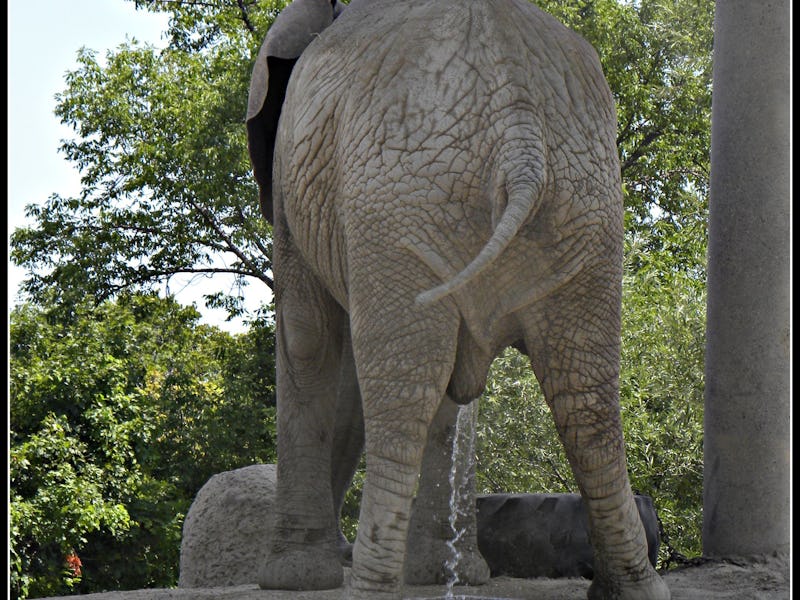Ig Nobel Physics Team Takes #1 Prize in Study on Going Number 1
When it comes to duration, size doesn't matter.

Among the top honors at the predictably entertaining and always educational Ig Nobel Prize ceremony, was the prize in physics, which was about pee.
That prize went to a team from USA and Taiwan that went to the zoo and measured how long mammals pee. It found that “duration of urination does not change with body size.” It turns out that all mammals over three kilograms (6.6 pounds) take 21 seconds, plus or minus 13 seconds, to empty their bladders, regardless of overall body size. Here’s the full text of the team’s findings. Wow!
Which makes this guy, statistically, about average:
“This feat is possible, because larger animals have longer urethras and thus, higher gravitational force and higher flow speed,” the researchers discovered. “Smaller mammals are challenged during urination by high viscous and capillary forces that limit their urine to single drops. Our findings reveal that the urethra is a flow-enhancing device, enabling the urinary system to be scaled up by a factor of 3,600 in volume without compromising its function.”
Thanks, science!
In other hilarious research involving animals in compromising positions, the biology prize went to a Chilean team who made the incredible discovery that if you put a weighted stick on the tail of a chicken, they walk sort of like how we imagine a dinosaur would.
Yes, there’s video:
The Ig Nobels, held on the Harvard University campus, are decidedly silly and irreverent, but they celebrate real science and honor scientists who may not be otherwise recognized for their imaginative work.
While prize winners are given a chance to quietly decline the award before public announcement, very few do. Scientists travel from around the world to receive their prize in person.
If you missed it, a full video of the ceremony should soon be posted here.